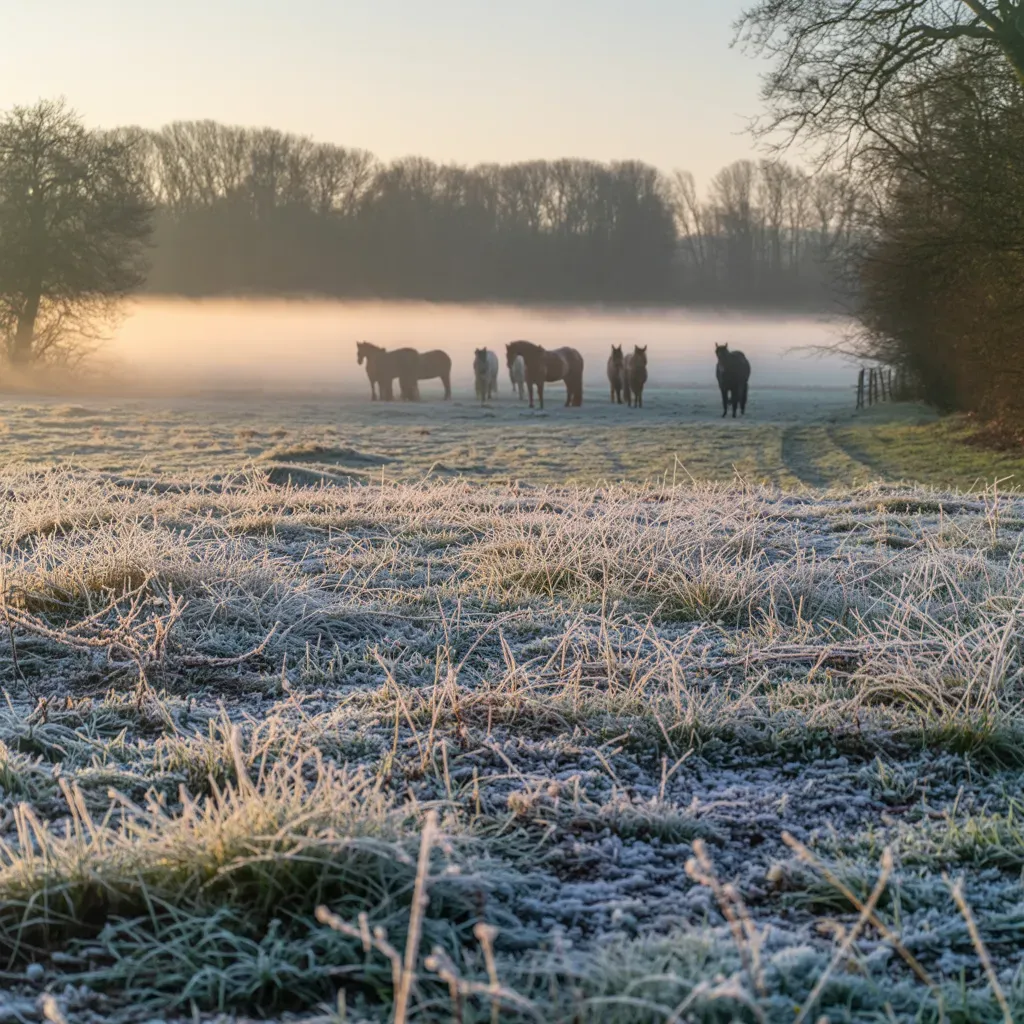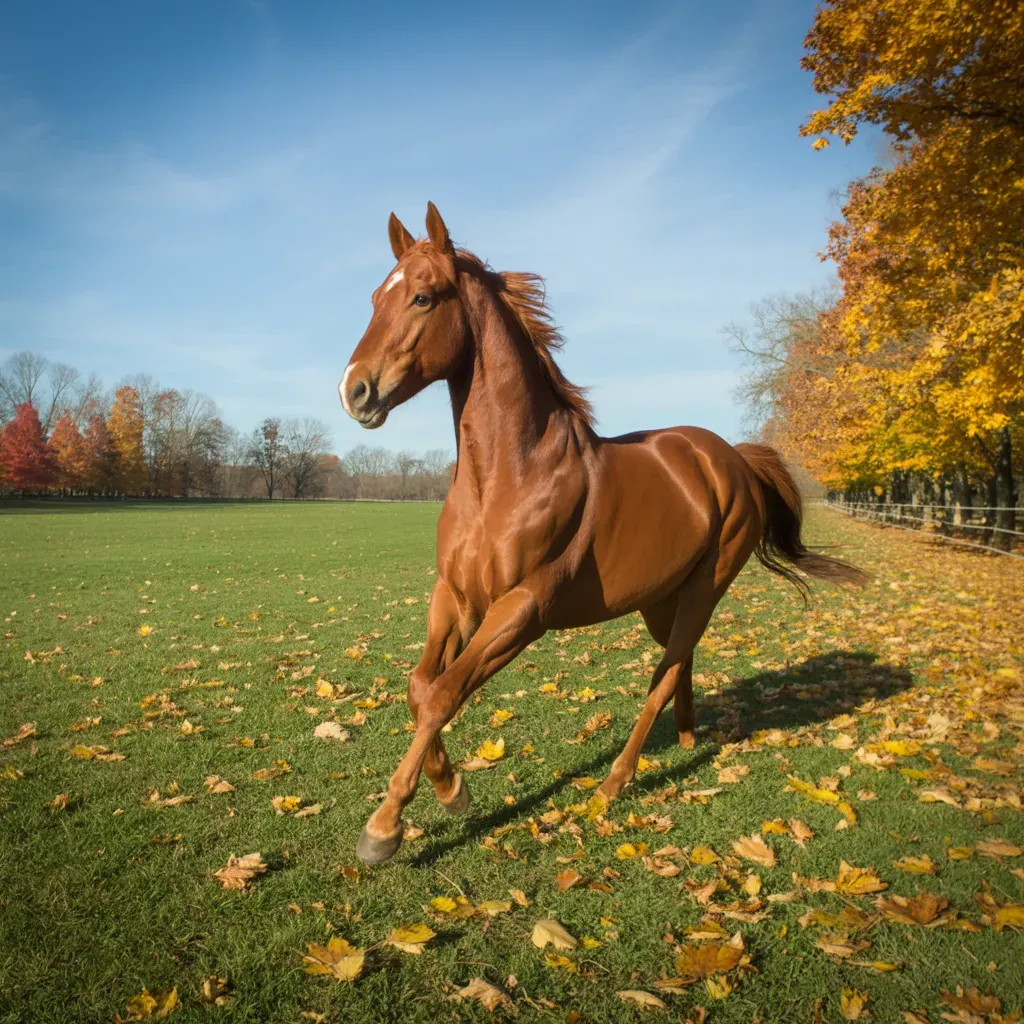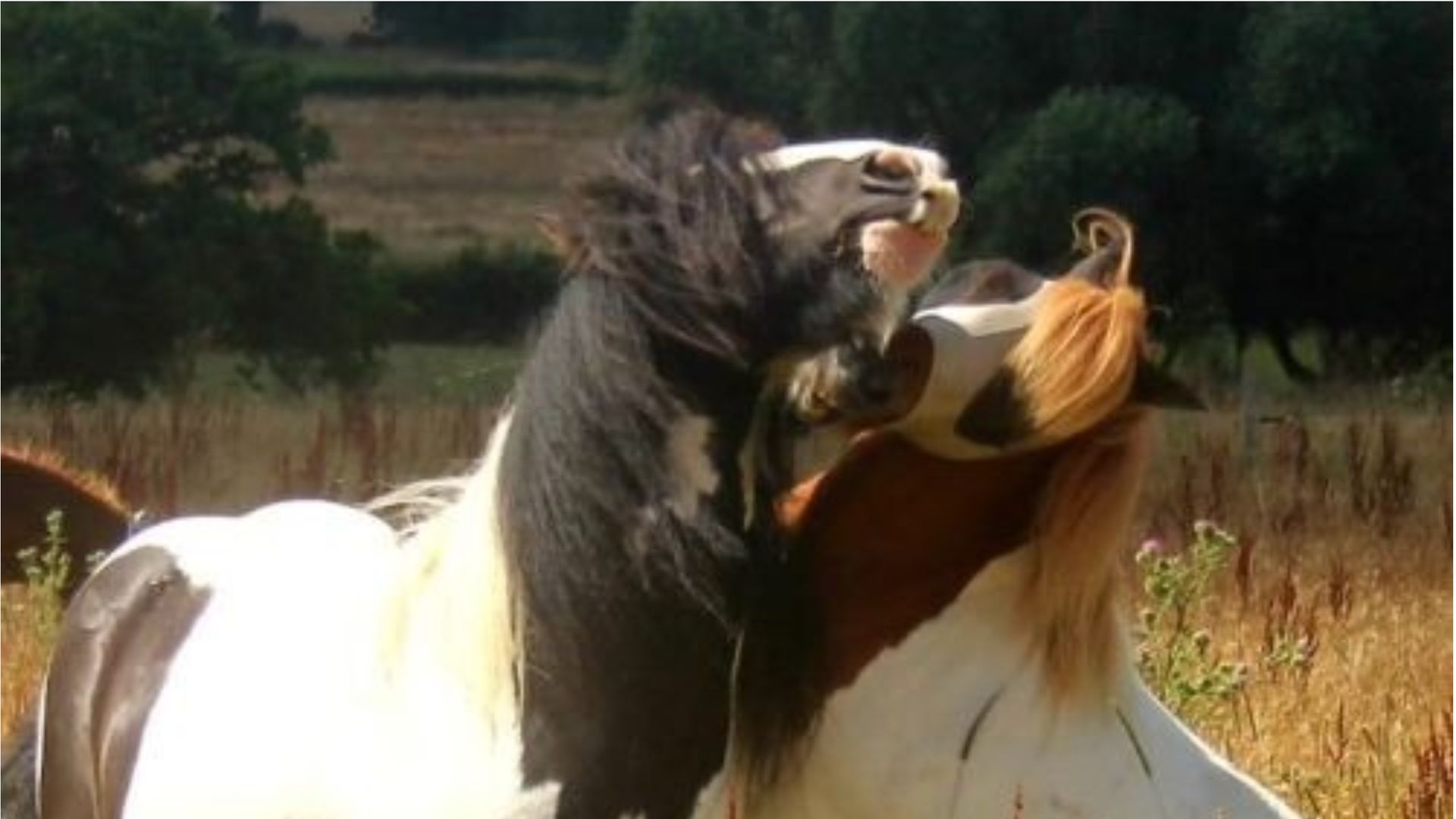HERB NERD - The Role of Dopamine and Mucuna Pruriens for Cushing's Awareness Month
Supporting your horse naturally during Cushing's Awareness Month: the role of dopamine and Mucuna pruriens
As September arrives, it's a crucial time for horse owners to become more aware of Cushing's disease, especially since this month is often when vets test for this condition. Understanding Cushing's, the significance of dopamine in managing it, and how to support your horse naturally, can make a huge difference in your horse's health and well-being.
Cushing's disease, also known as PPID, is a condition that affects the endocrine system, leading to the overproduction of cortisol by the adrenal glands. This excessive cortisol can cause a range of symptoms in horses, including increased thirst, frequent urination, a pot-bellied appearance, muscle wastage, and laminitis. One of the underlying issues in Cushing's disease is reduced levels of the dopamine hormone, which impacts the pituitary gland's function and the hypothalamic-pituitary-adrenal (HPA) axis, often leading to elevated cortisol levels.
Dopamine plays a critical role in regulating the HPA axis by inhibiting the release of
adrenocorticotropic hormone (ACTH) from the pituitary gland. ACTH stimulates the adrenal glands to produce cortisol. In healthy horses, dopamine ensures that cortisol levels remain balanced. However, in horses with Cushing's, dopamine levels are often deficient, leading to dysregulation of this system and excessive cortisol production.
Pharmaceutical vs. natural support for dopamine levels
The pharmaceutical drug Prascend is commonly prescribed to increase dopamine levels in horses with Cushing's. While effective for many horses, Prascend doesn't suit all due to potential side effects like loss of appetite, depression, and lethargy.
Recognising this, we've developed two proprietary Cushing's blends designed to support your horse, to cover whether they’re taking, or aren’t taking, Prascend. Our CushTonic-1 blend is suitable for horses not taking Prascend, aiming to enhance dopamine levels naturally, providing a holistic approach to managing Cushing's.
What is dopamine? A deep dive into the dopaminergic system
Dopamine is one of the brain's primary neurotransmitters, most commonly associated with reward, motivation, and pleasure. However, its role extends far beyond that, influencing focus, cognitive flexibility, emotional resilience, motor control, hormone regulation, immune function, and coordination of body movements. In essence, dopamine is vital for both mental and physical health.
Dopamine is part of the catecholamine family, which includes other significant molecules like epinephrine (adrenaline) and norepinephrine (noradrenaline). Produced in the brain, dopamine also functions in various bodily systems, including the cardiovascular and immune systems. Despite comprising only 1% of brain neurons, dopaminergic neurons have a significant impact on cognitive performance and emotional well-being.
The role of dopamine in the brain
Dopamine is synthesised in small but critical regions of the brain, primarily the midbrain's substantia nigra and the ventral tegmental area (VTA). These areas are involved in controlling movement, reflexes, reward processes, and executive functions like decision-making, problem-solving, and behavioural flexibility. Dopamine is transmitted through nerve fibres to other parts of the brain, where it influences a wide range of functions, from motor control to emotional states.
Enhancing dopamine naturally: the power of Mucuna pruriens
In the world of natural remedies, few plants are as remarkable as Mucuna pruriens. This potent herb, deeply rooted in Ayurvedic medicine, offers a wealth of benefits through its naturally high levels of L-Dopa, a precursor to the neurotransmitter dopamine. Whether you're familiar with Ayurveda or new to the concept, Mucuna provides a perfect example of how traditional knowledge can meet modern science to enhance health and well-being.
Ayurveda, India’s ancient system of medicine, has been nurturing health for over 3,000 years with its holistic approach. This traditional practice emphasises balance between mind, body, and spirit, using natural remedies, diet, exercise, and lifestyle choices to achieve and maintain wellness. Within this framework, Mucuna, also called the ‘velvet bean’, has long been revered for its therapeutic properties.
Mucuna is particularly celebrated for its high content of L-Dopa, a compound that the body converts into dopamine. In essence, dopamine is essential for a happy, healthy life, and Mucuna pruriens serves as a natural source to boost its levels.
The magic of L-Dopa: more than just a dopamine precursor
L-Dopa, or levodopa, is well-known in medical circles, especially for its role in treating Parkinson’s disease and other neurological conditions. But its benefits extend far beyond these applications. As a precursor to dopamine, L-Dopa not only helps regulate mood and motor functions but also plays a key role in producing other important hormones like epinephrine and norepinephrine - better known as adrenaline.
When L-Dopa enters the brain, it crosses the blood-brain barrier - a critical filter that protects our brain from harmful substances - and is converted into dopamine. This conversion boosts the levels of dopamine in the brain, enhancing communication between nerve cells and supporting overall brain health. This process is why L-Dopa is so effective in treating neurological disorders and why it's also associated with improved cognitive function, reduced stress, and better mood regulation.
Benefits of Mucuna and L-Dopa: from ancient wisdom to modern use
The traditional uses of Mucuna pruriens in Ayurveda are as diverse as they are profound. This versatile herb has been used to treat nervous disorders, improve sleep, combat parasite infections, enhance fertility, and even act as an anti-aging remedy. Its ability to balance hormones makes it a go-to for addressing conditions related to thyroid function, testosterone levels, and cortisol metabolism.
Moreover, Mucuna has found a place in modern wellness routines as a natural mood elevator, skin health enhancer, and even as a remedy for snakebites and scorpion stings in some African traditions. The list of benefits is extensive, and it underscores the herb’s reputation as a powerful natural medicine.
Contraindications
While the benefits of Mucuna and L-Dopa are impressive, they aren't suitable for everyone, and I quote this in terms of human research; whilst it's now known that mucuna is safe to feed to horses, we still sadly lack sufficient research on it. So, from a human perspective, it should be avoided if pregnant or nursing, due to its impact on hormone levels. Additionally, individuals with certain health conditions - such as cardiovascular disease, diabetes, liver disease, and mental illness, should consult a healthcare provider before incorporating Mucuna into their routine.
It's also important to be aware of potential drug interactions. Mucuna pruriens may lower blood sugar levels, so it's advisable to stop taking it at least two weeks before surgery. Furthermore, what we do know for our horses is that it should not be combined with Prascend, due to the risk of dopamine overstimulation. The same goes for humans - combined with certain medications, including MAOIs, methyldopa, and some antidepressants, may increase the risk of adverse effects.
In short, as with any supplement, it's essential to approach it with awareness and to consult with a healthcare professional, especially if there are other underlying health conditions.
Embracing the power of mucuna pruriens
For those seeking natural ways to enhance brain health, manage stress, or support overall well-being, Mucuna offers a promising solution. Its rich history in Ayurvedic medicine combined with modern research underscores its potential as a powerful natural supplement.











